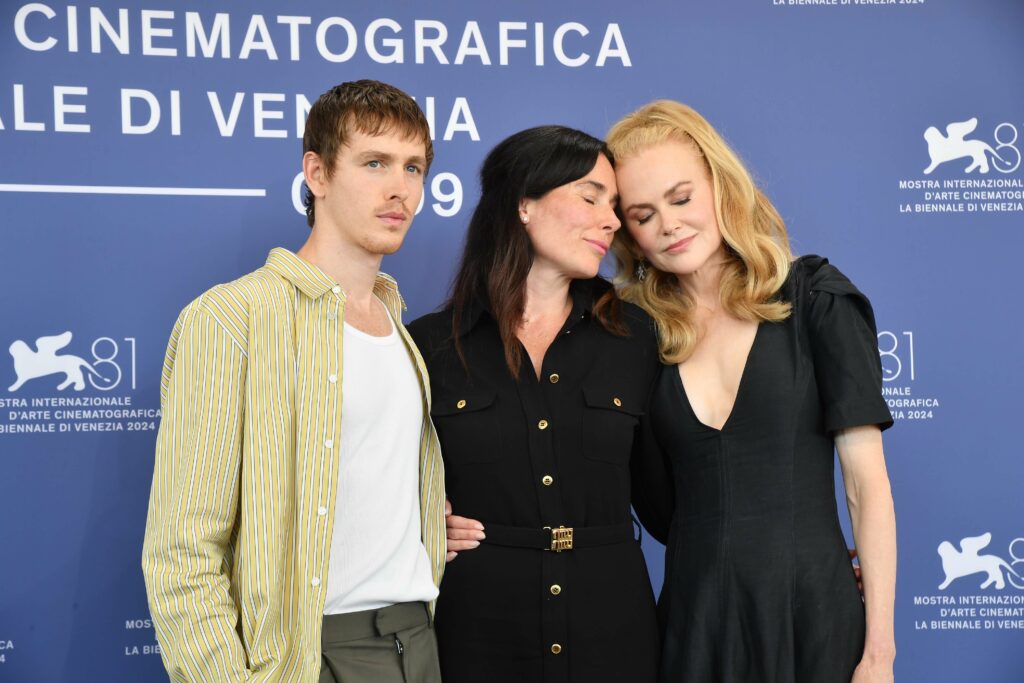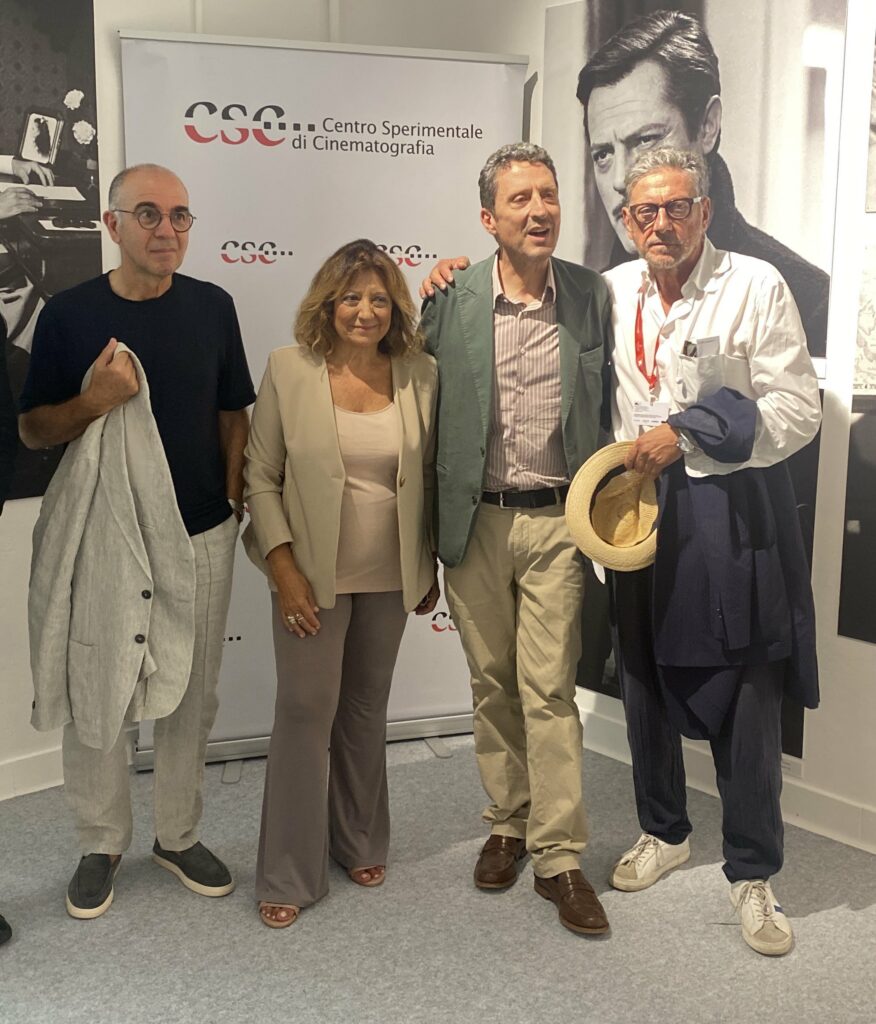Nicole Kidman in Babygirl between sex and desire: “I love telling the story of women in all facets.”
“I feel exposed and vulnerable showing a film like this to the world, but doing it with people like Halina Reijn and the rest of the cast made it delicate, intimate and very deep. Now we’re all nervous, my hands are shaking, but I’m proud to be at a festival like this, where we’re finally making films with a lot of women at the helm.” Nicole Kidman talks about anxiety but hides it beautifully through smiles and jokes when she presents to the press at Venice 81 Babygirl, the erotic thriller written and directed by Halina Reijn that features her in a very sexually explicit role. Indeed, Kidman plays the role of a powerful business executive, mother and wife, whose sexual desires are suddenly revealed (and indulged) by a young intern, Samuel, played by Harris Dickinson. With strong references to the erotic thrillers of the 1990s reimagined in a contemporary key, Babygirl “is a film about a woman in existential crisis, about desire and the confrontation of different generations who can learn from each other,” the director explains. “I hope this film can be a tribute to self-love and freedom.”

“It is a film about desires, inner thoughts, secrets, marriage, truth, power, consent. It is the liberating story of a woman told from a female gaze,” Kidman further explains. “I love examining women on screen, what it means to be a woman in all its facets and labyrinths.” Not just women, Babygirl also explores various types of masculinity, including that of Antonio Banderas, Kidman’s husband in the film. “I used to participate in festivals with films that could no longer be made today because they were politically incorrect,” says the Spanish actor. “But when I read the script for Babygirl I thought, ‘Someone doing something different, less bad!’ Halina had the strength and courage to put on the screen things we all think: we are all prisoners of our instincts. We are animals. There is nothing democratic about our nature.”
The Sweet Cinema: Marcello Mastroianni
“Cinema is a machine of suggestions, words between dramaturgy and literature and that ancient charisma that is the science of actors. With Mastroianni, the absolute idea of life is rooted in the science of relying on the poetry of a presence. With these words, Pietrangelo Buttafuoco opened the presentation of the exhibition Marcello, come here…, 100 years and another 100 times Mastroianni, curated by Laura Delli Colli, which opened yesterday on the Island of San Servolo. The exhibition is the Centro Sperimentale di Cinematografia’s homage to Mastroianni’s 100th birthday, strongly desired by President Sergio Castellitto who, recalling his first serious set experience in Luciano Tovoli’s Il generale dell’armata morta (1983), where he starred alongside Mastroianni and Michel Piccoli, said that he ‘learnt from them how stars can remain actors and after 100 films still have that panic in front of the foreground that is fundamental not to forget. In these times of ferocity and cruelty, it is nice to celebrate here a man who gave a pacifying image’.

‘Mastroianni had calmness and sympathy. He was a sly man,’ concludes Laura Delli Colli, ‘With this exhibition, whose ideal subtitle is Il Dolce Cinema (The Sweet Cinema), we wanted to tell the man’s story through signs, words, encounters with directors and set images’.
Oscar Cosulich
IWONDERFULL, 3 YEARS OF (UNEXPECTED) SUCCESSES
“Why the heck do you keep spending €6.99 on another platform?’. This is the question asked by I WONDERFULL, founded and directed by Andrea Romeo, who opened the meeting at La Villa to celebrate the first three years of the streaming platform. ‘We try not to focus on quantity,’ replies Romeo – but on the movies that interest our audience. We don’t buy entire libraries to make quantity’. ‘Our titles are 350 with a couple of releases a week,’ adds Giorgia Fassiano, responsible for editorial coordination. The answer lies in the human factor for Simone Soranna, resident film critic. ‘We rely on the human algorithm. We offer a guide to help the audience to choose the most suitable film. ‘The audiences who like to alternate between mainstream and auteur films do not find what they seek on other platforms. I WONDERFULL is trustful,’ emphasises Flavio Natalia, director of Ciak. ‘The rivalry between cinema and platforms is now just a cliché’, concludes Ilaria Feole of Film TV.
Tiziana Leone

